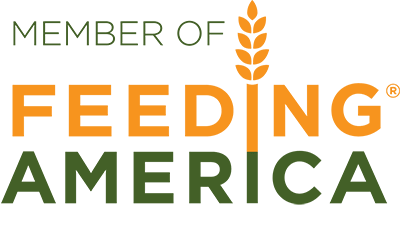Feeding Texas Network Backs Major Hunger-Fighting Wins During 2023 Legislative Session
With support of the Feeding Texas network of food banks, the Texas Legislature passed several new laws that will prevent hunger for Texans experiencing food insecurity.
“This year’s legislative session was our most successful since Texas food banks came together as a network over 20 years ago to engage state lawmakers in the fight against hunger,” said Celia Cole, CEO of Feeding Texas. “We were honored to have overwhelming bipartisan support for these anti-hunger policies. Regardless of political affiliation, we can agree that food should not be an impossible choice.”
“We enjoyed being part of the process this year and taking a team from the East Texas Food Bank to visit with our East Texas legislators in Austin to impact the successful passage of these bills,” said Dennis Cullinane, CEO of the East Texas Food Bank. “The passage of these bills will help more East Texans access the food they need.”
Three bills passed this legislative session along with increased funding for food distribution.
1. Update the SNAP Vehicle Asset Test (HB 1287): Texas uses a vehicle asset test to determine SNAP eligibility, placing limits on the value of the vehicles a household may own and still qualify for the program. HB 1287 makes a one-time inflationary adjustment to the Vehicle Asset Test to better reflect today’s car values, increasing limits from $15,000 to $22,500 for the first car and from $4650 to $8700 for additional vehicles. The bill was authored by Rep. Ryan Guillen and sponsored by Sen. Cesar Blanco.
2. Implementing pre-release SNAP registration (HB 1743): Early access to SNAP benefits ensures formerly incarcerated Texans have immediate resources for food so they can begin rebuilding their lives and reduce recidivism. HB 1743 supports people exiting the criminal justice system by allowing eligible individuals to apply for SNAP before their release so they have access to food upon release. The bill was authored by Rep. Jeff Leach and sponsored by Sen. Royce West.
3. Increasing funds for produce rescue: The Surplus Agricultural Products Grant helps food banks rescue surplus or unsellable produce from Texas farmers for distribution to hungry Texans. One hundred percent of program funds go to farmers and transportation providers to offset the cost of harvesting, storage, packaging and freight. The network achieved a $10.2 million increase in funding for the Surplus Agricultural Products Grant, doubling funds to $20.4 million for the biennium. This is a win-win-win for hungry Texans, farmers, and the environment.
4. Exempting state transportation-related taxes and fees for food banks (HB 3599): State transportation-related fees are significant food bank expenses. HB 3599 will give food banks an exemption from fuel taxes and registration for their fleets, meaning food banks can reinvest those costs into feeding their communities. The bill was authored by Rep. Shawn Thierry and sponsored by Sen. Chuy Hinojosa.
“These legislative victories represent the hard work of many different stakeholders and are responsive to the needs expressed by our communities,” Cole said. “We are grateful to our bill authors, anti-hunger advocates, and all of the organizations that came together to help get these priorities across the finish line. From small, rural communities to major metropolitan areas, these new laws will help feed Texas families and support food banks across the state. While the fight for food security continues, we’re one step closer to a hunger-free Texas.”
Governor Gregg Abbott signed HB 1287, HB 1743, and HB 3599 into law this month. The new laws take effect September 1, 2023.
